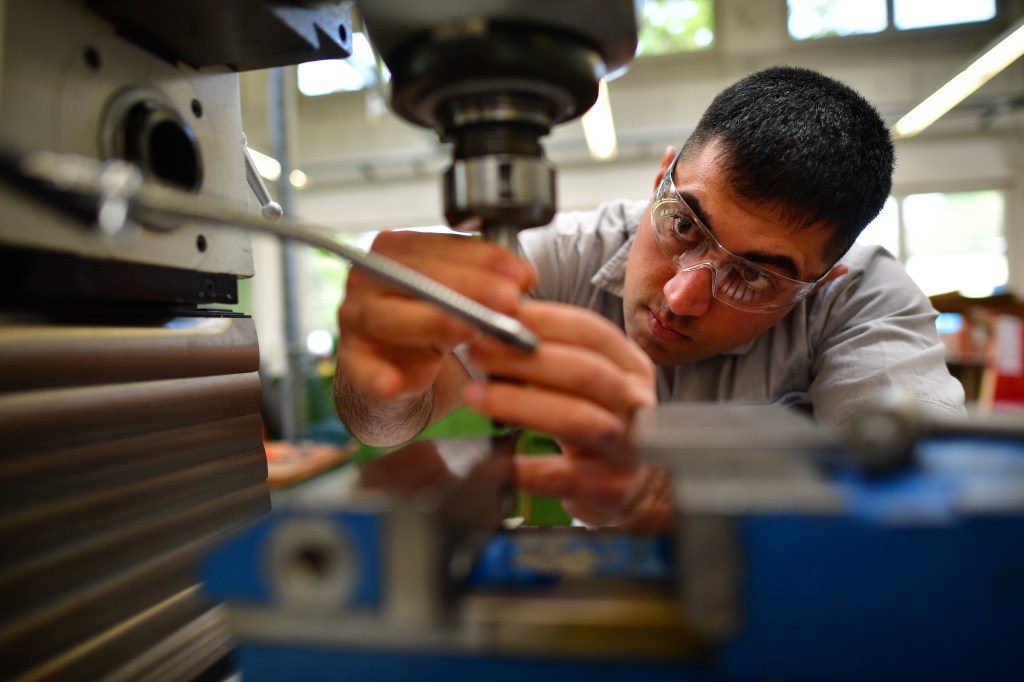Mid-sized enterprises that have the scale and sophistication to compete more effectively in the modern global economy are missing, writes Melina Morrison, CEO of the Business Council of Co-operatives and Mutuals.

Throughout the height of the Covid pandemic, sovereign risk became the catch cry and supply chain security the dictum. Australia it turns out, was ill prepared for the disruption in global supply of key ingredients and overly reliant on offshore manufacturing capability. The hollowing out of Australia’s once lauded manufacturing base not only showed up as trade deficits in categories of value-added manufactured goods, it showed up in a crisis as vulnerability.
Nowadays, as government and business spruiks the idea the that best recovery is to ‘build back better’ we are forced to face certain hard realities. Skilled labour shortages are not the only issue we face in building stronger, more resilient supply chains because manufacturing in this country has a bigger problem. It has a missing middle.
What exactly do I mean by a missing middle? It is evidenced in the profile of today’s Australian business landscape; one that features many sub-scale small businesses and just a small number of very large businesses. Fully 90% of Australian businesses are small and 70% of those have fewer than 20 employees. Essentially, Australia has a much larger proportion of micro-enterprises than many other countries. What is mostly missing is those mid-sized enterprises that have the scale and sophistication to compete more effectively in the modern global economy.
“The diminished diversity and maturity that might otherwise have been provided by mid-sized businesses has reduced Australia’s resilience in the face of all these challenges.”
The need for a larger mid-sized business sector to produce more finished goods onshore was highlighted by three years of disrupted global supply chains, as the COVID pandemic left a trail of economic destruction.
It is not just the rampaging virus that has exposed weaknesses. There have been shocks on the trade front, in labour markets, from climate-related catastrophes and due to war-fuelled energy uncertainty and inflation pressures. The diminished diversity and maturity that might otherwise have been provided by mid-sized businesses has reduced Australia’s resilience in the face of all these challenges.
In recent years, the missing middle has also contributed to the nation’s low productivity growth. That has a cascading impact of making it more difficult to attract and retain workers through improving wages and conditions.
A greater dependence on the global economy has arisen as once thriving local industries have vanished offshore. One consequence has been the erosion of the nation’s taxation base as the pool of Australian taxed entities shrinks. At the same time, vulnerabilities across many supply chains have also increased as a result.
However, this nation’s economic history is a testament to ingenuity and resilience. Witness the once mighty fruit and vegetable canning industry and other advanced food and beverage processing – now sadly offshored. The brands we grew up with from Golden Circle and Goulburn Valley to SPC and Safcol might still be on the tin, but today, we buy back those value-added products manufactured offshore.
There is no reason Australia cannot be doing more to re-establish greater self-sufficiency. The key will be to focus on that missing middle tier of businesses. Why not aspire to Germany’s mid-sized business sector, the “Mittelstand”, or an Australian version of the successful co-operative business clusters in Italy’s Emilia Romagna or Spain’s Basque region?

I am firmly of the view that filling in the missing middle of Australian manufacturing can be achieved through co-operatives. Co-ops aggregate smaller businesses, allowing them to share costs, develop value adding activities and access local and export markets by working together.
There are emerging examples of success that should be acknowledged and which could one day emerge as stunning success stories. One example is the salad bowl of southeast Queensland which needs a local facility including a deep-freezing line to process more fruits and vegetables for export markets. The Lockyer Valley grows the most diverse range of vegetables in Australia, but has been without a local food processing facility since 2011 when a large player located in Northgate, Queensland relocated its operations overseas. For the past decade or more Lockyer Valley Fruit and Veggie Co-op has been striving to repatriate fruit and vegetable processing to the region, and is on the verge of achieving its mission.
“If we lack the courage to build it back up, living standards will be at risk.”
In the New South Wales Hunter Valley, the HunterNet Co-op is an established industry cluster of more than 170 small and medium manufacturers. The innovation-focused manufacturing network operates across mining, defence, energy, infrastructure, the environment, medical technology and agribusiness. It has played a significant role in Newcastle’s feted manufacturing base and could be a model for other parts of regional Australia.
Such clusters are an effective way to introduce smaller firms to an innovation mind-set, rebalance the economy and focus more on advanced manufacturing. Importantly that build resilience and reduce sovereign risk in Australia because they hold capital, people and capacity in the local economies where they operate. Think of it as profit, but sticky profit.
They facilitate investment in new areas of opportunity and R&D. The burgeoning field of robotics in Australia is just one industry of the future that will require the skills, scale, growth potential and capital base of mid-sized enterprises in order to flourish.
Those mid-sized co-operative and mutual enterprises that Australia does have already are often major employers in regional towns and hubs for regional economies. It makes sense to encourage their expansion and diversification as a way of maintaining and increasing high quality jobs, wages growth and market access.
The expression “no guts, no glory” has been attributed to American Air Force Major General Frederick Corbin Blesse, who penned an air-to-air combat manual of the same name in 1955. Make no mistake, Australia is in an economic battle and we need a laser-like focus on future-proofing our industries and co-operatively protecting our mutual prosperity.
If we lack the courage to build it back up, living standards will be at risk.
Melina Morrison is CEO of the Business Council of Co-operatives and Mutuals